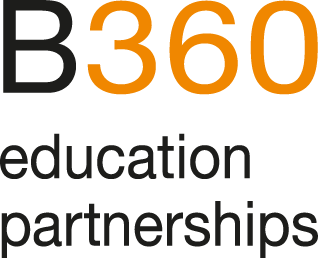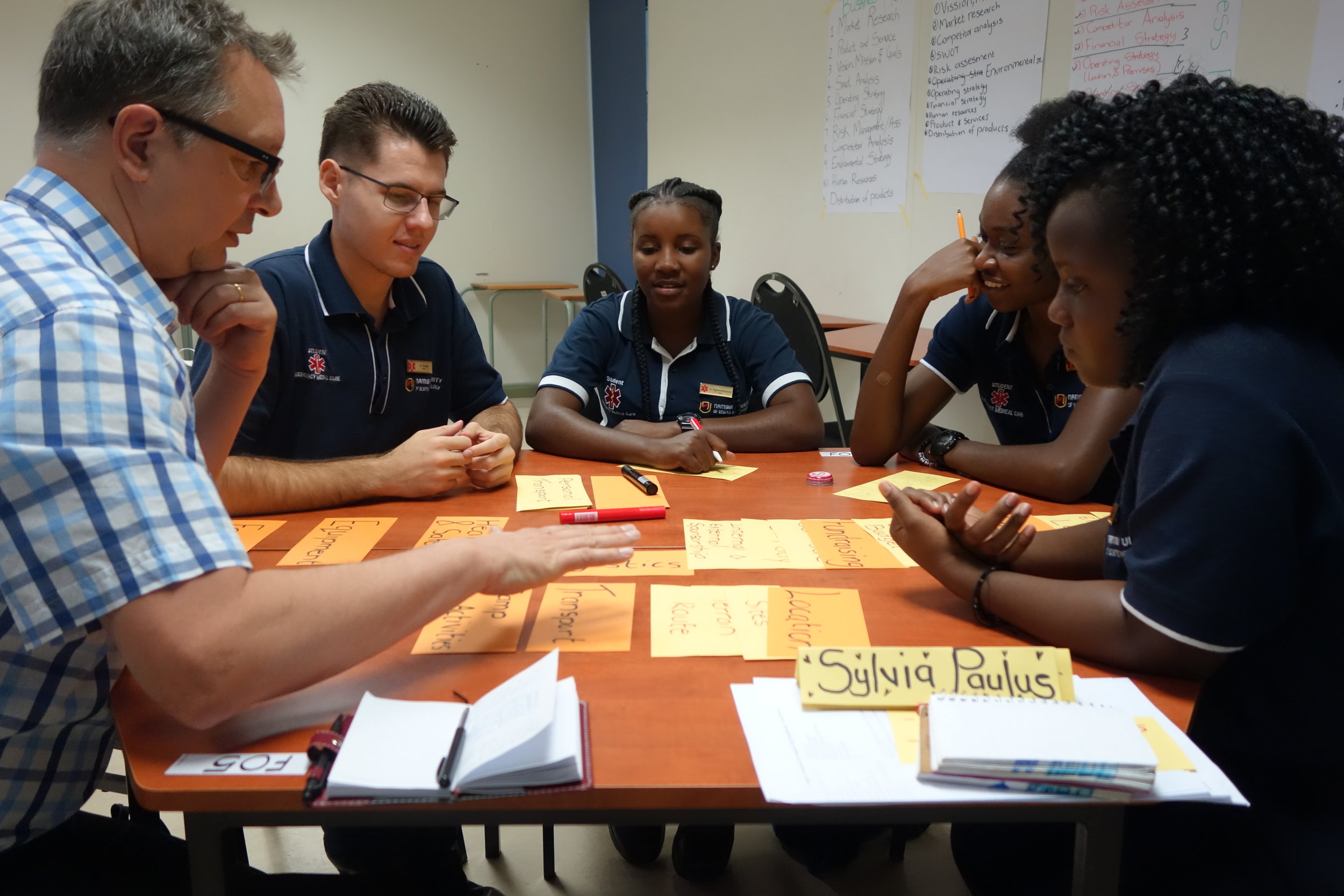Armin Knoblich
Global Project Manager
F. Hoffmann-La Roche Ltd
Faculty of Management Sciences
Namibia University of Science and Technology
January 29 - February 08, 2019
Career Starter Week
In Jan 2019 I went to Windhoek Namibia to teach Career Starter Week at the Nambia University of Science and Technology (NUST). Roche and B360, a Swiss NGO have been working together to enable this project, which facilitates knowledge sharing and skills-building for students preparing to enter the job market. This stay in Namibia was a great adventure for me personally. The unknown, the risk, less security… In a situation like this we miss our familiar structures and processes, rules and people. Overcoming these challenges is part of growing as an individual. In global companies like Roche in the time of changes, people need to be more prepared for adventures. We should keep trying, failing, improving and growing. However, more important from a university and students perspective, I have brought a completely different perspective to them – more global, from a different culture, very business oriented, people focused, … A particular topic has been time management for students. This was sometimes a challenge for everybody involved; but we managed and students learned to understand the situation from an employee’s perspective. I hope to have been able to contribute to the development and future success of these students.
Career Starter Week is a one-week full-day course to prepare students for job interviews and life in business, teaching them relevant soft and hard skills. Together with my B360 colleague Peter Stadler from Swiss Life, we worked with two classes each for a whole week. Soft skills are around communication and presentation skills. In addition, students need to get a better understanding of their own expectations and capabilities. Tools like Career Anchor, and approaches like elevator pitch or self-marketing are completely new to them. Many Namibian students have a talent for presenting. They easily use their hands as communication tools. They need more improvement in their willingness to speak up. Borne to a high-context culture they are very shy at the beginning with authorities like lecturers or older people.
Hard skills are about management tools and entrepreneurial skills. In particular, the subject of “Compliance” brought quite a few discussions. Corruption in many forms is a subject that touches many aspects of the Namibian society. Therefore, students were very interested and discussed eagerly. Closer to their professional experience are project management skills. Here the students applied their knowledge to projects dear to their heart. In particular, the EMC students have a big activity for their 1st year semester. They spend a weekend in the countryside to prepare them for the physical challenges of their work. They developed project plans and thought it systematically through. In the past they worked more on an ad-hoc base. For Business Management tools students were playing interactive games how to structure the approach for a company. One class was very competitive and discussing very engaged and emotional. Another class was very quietly looking for the best overall solution with very limited competitor behavior.
In addition, we talked about different Cultures. Namibia is a country with 12 different tribes and even more languages. However, many considerations of differences among people are based on the concept of race. Based on their history they are capable of defining very subtle differences between people based on their skin color and hair. We discussed how the students would recognize the teachers as not being from Namibia. One point was our accent. Another point was that we didn’t know that a local drink Soros needs to be diluted with water. We were trying to drink the concentrate! A very critical part of the learning experience for the student were lessons from Namibian professionals. They brought the local knowledge for many issues we taught, e.g. expectations for a CV or how to set up you own company. At the last days the students were combining their learning experiences. By developing business cases they were applying all the skills they had learned during the week. They assessed situations close to their experiences and presented to the lecturers. A final activity was a thank-you poster for the sponsors of our daily lunch sandwiches. We took pictures and shared them.
During the Apartheid there were only limited opportunities for non-white people to get education. I have met people who could only go to school starting at the age of 12 years after Namibia had become independent in 1990. Since then the country is struggling to educate and train its people of 2.4 mio men and women. They really deserve all the help they can get. So I still had to learn a lot about my Namibian students. For them future means improving their situation. They are keen learners. At the first day we were focusing on getting to know each other. After introducing my life I asked several students to give a brief introduction about themselves. Each speaker earned some sweets. Close interaction with the teacher helped me to understand my students and also the Namibian society much better than a tourist. The teachers very much appreciated the business experience I brought to the class room. In particular, the case studies were very welcome. Many of the teachers are very young and pursue their own Ph.D. Some of the students had 12 siblings! Others already had children. Therefore, they had a strong desire and great dreams to improve their lot. Many would like to start their own company or reach a position in which they could manage others. They dream about telling others what they should do. After a week the students and I got to know each other better. This was a very rewarding phase for me a teacher and also as an individual. They started to open up by asking questions, but also by telling personal stories. Over weekend they spend their time doing sports, watching TV, doing their hair, and almost all go to church on Sunday. Many of them read books written by African authors.
Time flew by. After my last presentation some students gave feedback how much they appreciated learning from a completely different perspective. I hope with my teaching about hard facts management skills and entrepreneurship and soft skill I have helped the students to develop their leadership skills as they become future leaders in the Namibian society. A special recognition also goes to NUST employees. They were doing a fantastic job to steer this course through various challenges.



